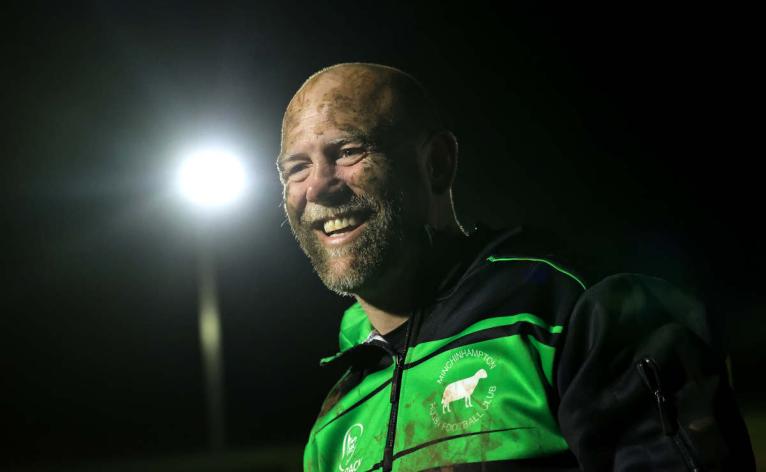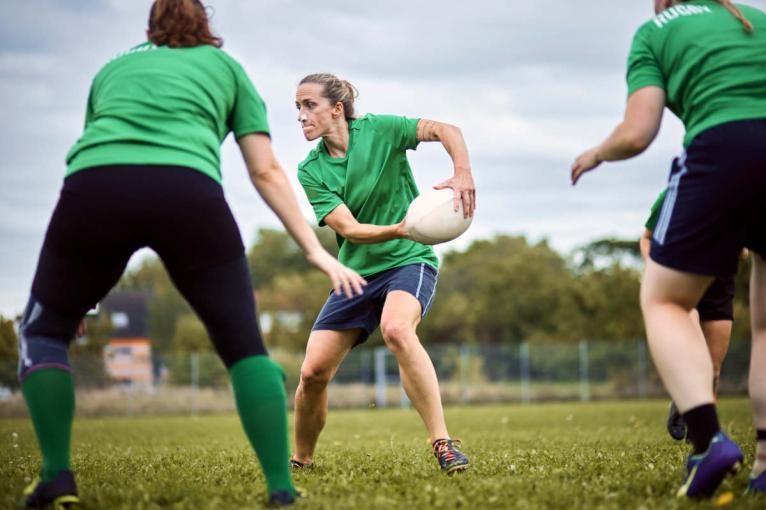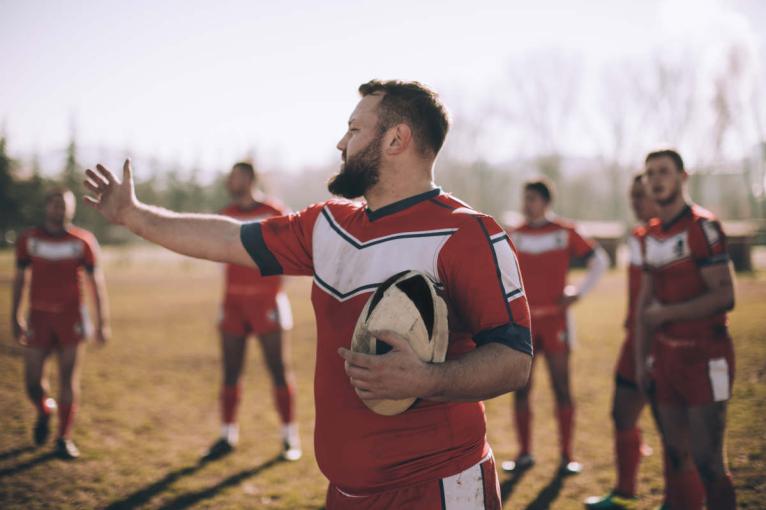I remember having a conversation with a rugby club president when I was a 20-year-old. He was bemoaning the fact that we would struggle to get players out on a Saturday.
Not only that, but the reasons given tended to be fairly flimsy. Maybe they were going on a trip with a partner, or had a wedding to attend, or – god forbid – were going shopping. All these were pathetic reasons for missing matches, I agreed.
I loved rugby, I loved the competition, I loved spending time with my mates and I loved going out afterwards. However, I was also 20. Nobody I knew was getting married, I had no money for shopping, and I had no partner to do any of that with either. At that point I was training twice a week, playing each Saturday, and coaching kids on Sunday morning. I couldn’t really see how that would change.
That might be familiar to many of you. Unfortunately, when I finished university, I then started working and this illusion fell away. I could still make one training session with relative ease. I could also generally make matches, but my Sunday commitments began to fade. As I got more money and a partner, it became harder to justify spending every single Saturday at the club and when I was there, I was keen to get away as quickly as possible afterwards.

One of rugby’s work-ons before Covid and in the years since has been its inability to adapt to the changing wants of its participants. Back in the 1980s and 90s, it was totally acceptable to leave your family at home to go and spend a day, and night, playing rugby. For some that is still true, but for many that’s no longer either acceptable or desirable.
The rate of participation in sports in the UK is higher than it has ever been before and it has bounced back to pre-Covid levels. But, of the 15 sports with the highest rates of participation, just one is a team sport – football. That includes all forms of football from organised 11 v 11 matches to kickabouts in the park.
The rest of the activities on that list are all individual – hill walking, swimming, weights sessions etc – or they are done in pairs; tennis and badminton. Crucially they are also all sports which can be done more or less at any time of day. We can fit them in around our busy lifestyles.
Touch rugby has seen an increase of 30% in its participation rates in the last 18 months. Over 10,000 people played tag rugby each week in the UK in the early summer of 2023. What do they both have in common? They’re designed to fit around people’s lives.
One of the great modern sporting success stories has been Park Run. Every Saturday at 9am tens of thousands of people descend on their local parks to run a 5k. Many will stick around or move on to a nearby cafe. Or you can simply turn up, run as fast as you can, and leave. Either way, you’re unlikely to be back later than 11am.
Compare that to a grassroots rugby game. Meet at 1pm, the match finishes at 3.30pm. Even if you’re super quick to leave, you’re still looking at 4pm. That’s excluding any travel time to away matches.
Rugby’s participation rates are declining in the UK. A trend that started well before Covid has simply accelerated. While there has been a recent bump since the pandemic ended, this has been boosted by more flexible versions of the sport like touch or tag, but more on those later.
Touch rugby has seen an increase of 30% in its participation rates in the last 18 months. Over 10,000 people played tag rugby each week in the UK in the early summer of 2023. What do they both have in common? They’re designed to fit around people’s lives.

When I was in London, I played in a touch league on a Thursday night and occasionally one on Saturday morning. I didn’t have to leave work early and I also had all of Saturday afternoon free. Both are generally played in mixed environments.
I rile against the idea that rugby players all fit into a particular type. I have played senior rugby for 13 years now. When I started, the changing room talk wouldn’t be seen as acceptable now, and wasn’t really acceptable at the time either. That is no longer the case in my experience, but the modern rugby culture isn’t for everyone. A mixed environment is a really great change and something I would encourage all players to seek out.
Grassroots clubs should try and tap into this growing area. Touch and tag are competitors to contact rugby, but why fight it? There are legitimate reasons for not wanting to play contact rugby. Rather than bemoan that choice, clubs should welcome these groups in. Maybe some will transition over to contact rugby, but even if they don’t the club will benefit.
You need to coordinate at least 30 people so you can’t just wait for them to decide what time is best. But you can plan better. Thursday or Friday nights manage to avoid crossover with regular life, as does earlier on a Saturday.
That might sound fine, but what about contact rugby? It can be saved as well. What have we learnt so far? Participation is highest among those sports which can fit around our lives. What you need to do is find where the available time is and move your sport to then.
Gyms do this very effectively. They open early and close late, or not at all in some cities. Whenever you have time, the gym will be open. The streets are open for running at any time, though understandably many people don’t wish to go out after dark. The number of indoor bike trainers sold went through the roof during the pandemic. All are examples of activities which are available whenever you have time to do them.
Rugby can’t do that exactly. You need to coordinate at least 30 people so you can’t just wait for them to decide what time is best. But you can plan better. Thursday or Friday nights manage to avoid crossover with regular life, as does earlier on a Saturday.

Sunday league football generally kicks off somewhere between 10am and 12pm, giving players at least the bulk of the day to do other things. Rugby does this with the youth game, yet the senior game seems tied to its mid-afternoon on a Saturday slot.
I know the common arguments against all this; not all clubs have floodlights, some players travel from too far away to make evening games, ‘we’ll lose money on the bar’ etc. All have their merits but ultimately they’re akin to driving your car towards a yawning abyss and moaning that it would hurt your knee too much to press the brake lever.
Grassroots rugby, as it is currently set up, is no longer sustainable. We can take the view of the president and moan that players should prioritise their club and sack off their weekend plans, but actually, none of us want to do that. We all know the secret – or not so secret – joy of a last-minute cancelled match which hands you back your weekend.
The world has changed. We can either keep ploughing on with the set-up we have now and watch the decline continue, or we can do something about it.
For years cricket had this same issue. Games would last six hours, putting us rugby lot to shame. I spent entire Saturdays traipsing to obscure parts of north-west London to play cricket, getting back just in time to see the sun setting. That is still an option if you want to do that but it’s increasingly being replaced by shorter formats which can be played in an evening.
Cricket added 60,000 participants per month between 2019 and 2022. Rugby lost 28,000 in the same time span.
The world has changed. We can either keep ploughing on with the grassroots set-up we have now and watch the decline continue, or we can do something about it.
There isn’t a perfect solution, but the most imperfect solution is to do nothing and hope the clock turns back 30 years.


Comments
Join free and tell us what you really think!
Sign up for free